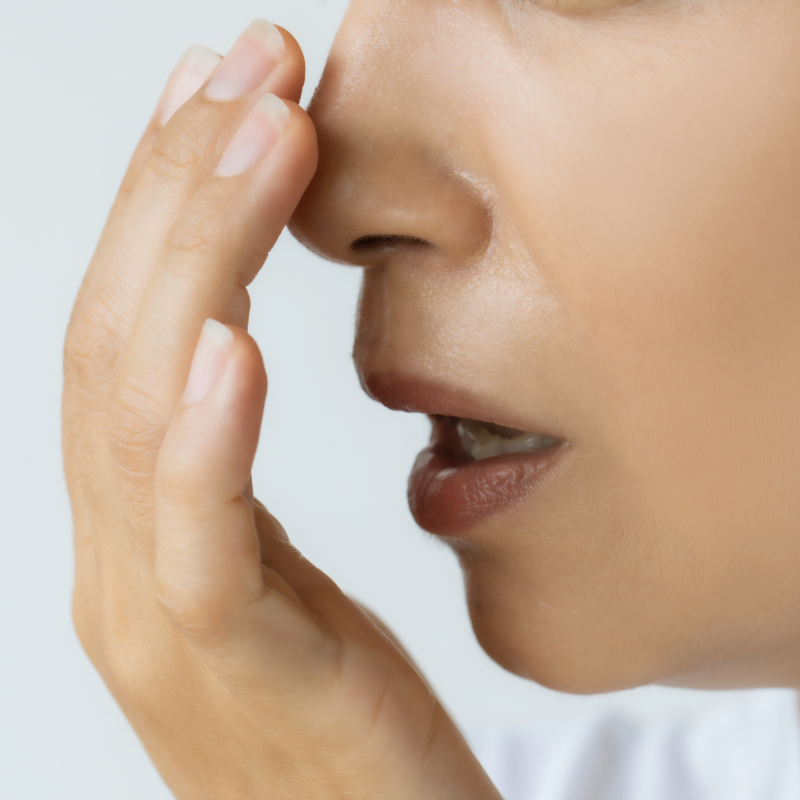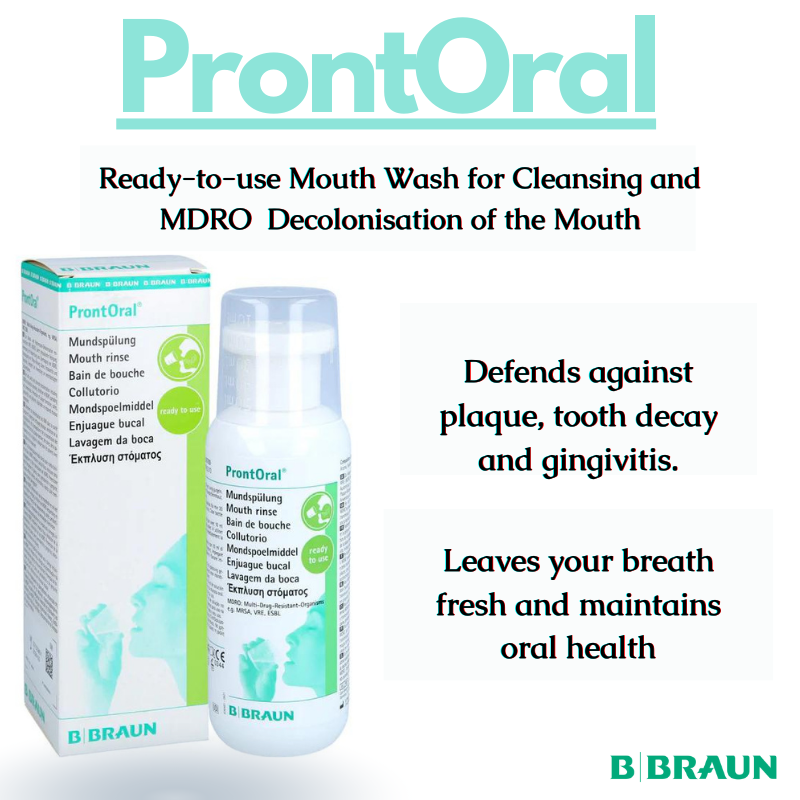Bad breath, or else Halitosis as is it called, is an unpleasant situation especially in cases where you often come into contact with people as this can cause you anxiety. However, there are solutions to bad breath. The most important thing is to find the cause behind the bad breath. Most of the time it is due to bacteria that grow in the oral cavity but also to some diseases of the mouth and gums.
Why Does My Breath Smell Bad?

Smoking
Smoking can not only cause bad breath but also cause oral and gum disease that worsens bad breath.
Dry mouth
If your salivary glands do not produce enough saliva, your mouth becomes dry and dry mouth develops. Dry mouth can lead to gingivitis, tooth decay, and other problems that cause odor.
Medicines
Certain prescription medications can also cause bad breath.
Poor Oral Hygiene
The most common cause of bad breath is poor oral hygiene. If you don't brush your teeth and clean your mouth regularly, food debris can remain in your mouth. The uneven surface of the tongue, the crevices of the teeth as well as your tonsils can trap food debris and grow bacteria in the mouth that produce bad breath.
Tonsil Stones
Tonsil stones cause bad breath. The tonsils have crypts, in which food residues, dead cells and microbes often accumulate. This results in the creation of an unpleasant odor in the mouth.
Coffee
Coffee can be a cause of bad breath due to its strong taste as well as the effect it has on saliva production. Caffeine leads to a decrease in saliva production and, by extension, an increase in the number of bacteria.
Consumption of Foods High in Sugar
Diets rich in foods with a high sugar content can also lead to bad breath. Bacteria naturally present in the mouth feed on sugars, turning sweet treats into a sour smell.
High Protein or Low Carb Diet
Carbohydrates serve critical functions in the body, and if the diet is low enough in carbohydrates, it can lead to bad breath. Foods high in protein are sometimes difficult for the body to digest and tend to release sulfur gases when not metabolized.
Digestive Problems
Poor digestion or bowel disorders can all cause bad breath. If you have gastroesophageal reflux disease, odors from recently eaten food can easily back up into your esophagus and mouth, causing bad breath.
Other Causes
Although most bad breath is caused by odor-causing bacteria, there are more serious health conditions that can contribute to bad breath. Bad breath can be a warning sign that other diseases are present. Respiratory and tonsil infections, diabetes, liver and kidney problems, and certain blood disorders can cause bad breath. In some rarer cases, bad breath can be a sign of cancer or other serious conditions such as metabolic disorders.
How can I Prevent from Having a Bad Breath?
There are some quick and easy ways to get rid of bad breath.
Practice Good Oral Hygiene
Brush your teeth twice a day with fluoride toothpaste and floss more often. This will remove food debris and prevent plaque from forming. Replace your toothbrush every 3 months.
Don't Forget to Clean Up Your Language
The coating that normally forms on your tongue can be a host for foul-smelling bacteria. You can clean the tongue using the back of a toothbrush or a tongue scraper. Tongue scrapers are specially designed to apply even pressure to the surface of the tongue area.
Avoid Foods That Acidify Your Breath
The bacteria in your mouth love sugar. Avoid mindlessly consuming foods with a high sugar content. Bacteria use the sugar and turn it into acid. This wears down your teeth and causes bad breath. Also, choose sugar-free gum and candies.
Keep Your Gums Healthy
Antiseptic mouthwash can help kill the bacteria that cause bad breath and plaque that can lead to gingivitis, mild form of gingivitis as well as periodontitis.
Treat Bad Breath with Prontoral Antimicrobial Oral Solution with Polyexanide!

- Ready-to-use mouthwash for cleaning and microbial decolonization of the oral cavity, tonsils and throat.
- It prevents the formation of plaque, caries, periodontitis and gingivitis.
- Eliminates odors and gives fresh breath.
- No staining of the oral mucous membranes.
- Suitable for patients with sensitive oral mucosa - sensitive mouths (aphthous ulcers or oral operations).
- Maintains normal oral flora.
- Without alcohol and chlorhexidine.
Instructions for Use Prontoral Oral Solution with Polyexanide by B Braun
- Rinse your mouth three times a day with 10 ml of ProntOral.
- Gargle or apply to the entire oral cavity using an oral care swab.
- Application time: at least 30 seconds and/or 60 seconds for multidrug-resistant organisms, using dosing cap.
Also suitable for long-term use.
Visit your Dentist
Lat but not least, oral exams and professional dental cleanings can identify and treat periodontal disease, dry mouth, or other problems that may be the cause of bad breath. We understand that bad breath can be a stress in your daily life. In case bad breath is a chronic event, it is important to thoroughly investigate the situation with your doctor to discover the cause behind the bad breath.


